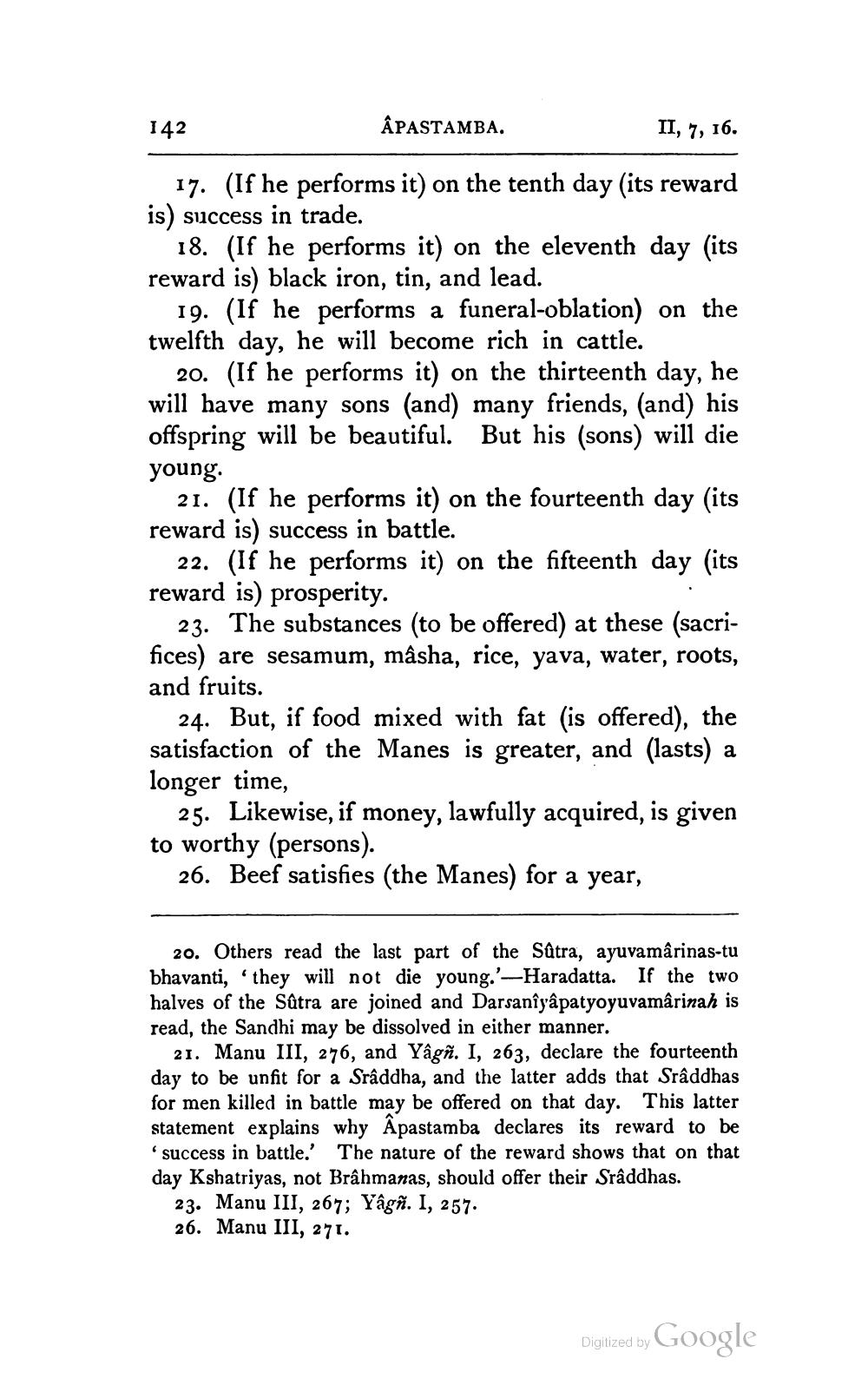________________
ÂPASTAMBA.
17. (If he performs it) on the tenth day (its reward is) success in trade.
142
II,
7, 16.
18. (If he performs it) on the eleventh day (its reward is) black iron, tin, and lead.
19. (If he performs a funeral-oblation) on the twelfth day, he will become rich in cattle.
20. (If he performs it) on the thirteenth day, he will have many sons (and) many friends, (and) his offspring will be beautiful. But his (sons) will die young.
21. (If he performs it) on the fourteenth day (its reward is) success in battle.
22. (If he performs it) on the fifteenth day (its reward is) prosperity.
23. The substances (to be offered) at these (sacrifices) are sesamum, mâsha, rice, yava, water, roots, and fruits.
24. But, if food mixed with fat (is offered), the satisfaction of the Manes is greater, and (lasts) a longer time,
25. Likewise, if money, lawfully acquired, is given to worthy (persons).
26. Beef satisfies (the Manes) for a year,
20. Others read the last part of the Sûtra, ayuvamârinas-tu bhavanti, they will not die young.'-Haradatta. If the two halves of the Sûtra are joined and Darsanîyâpatyoyuvamârinah is read, the Sandhi may be dissolved in either manner.
21. Manu III, 276, and Yâgn. I, 263, declare the fourteenth day to be unfit for a Srâddha, and the latter adds that Srâddhas for men killed in battle may be offered on that day. This latter statement explains why Apastamba declares its reward to be 'success in battle.' The nature of the reward shows that on that day Kshatriyas, not Brâhmanas, should offer their Srâddhas.
23. Manu III, 267; Yâgñ. I, 257. 26. Manu III, 271.
Digitized by
Google




